HIST 110 UNL Stempson Exam 2
1/21
There's no tags or description
Looks like no tags are added yet.
Name | Mastery | Learn | Test | Matching | Spaced | Call with Kai |
|---|
No analytics yet
Send a link to your students to track their progress
22 Terms
General William Howe
Commanding general for the British. Plans on taking NY and Washington knew and thought it was too symbolically important to let them take it, so he put a defense.
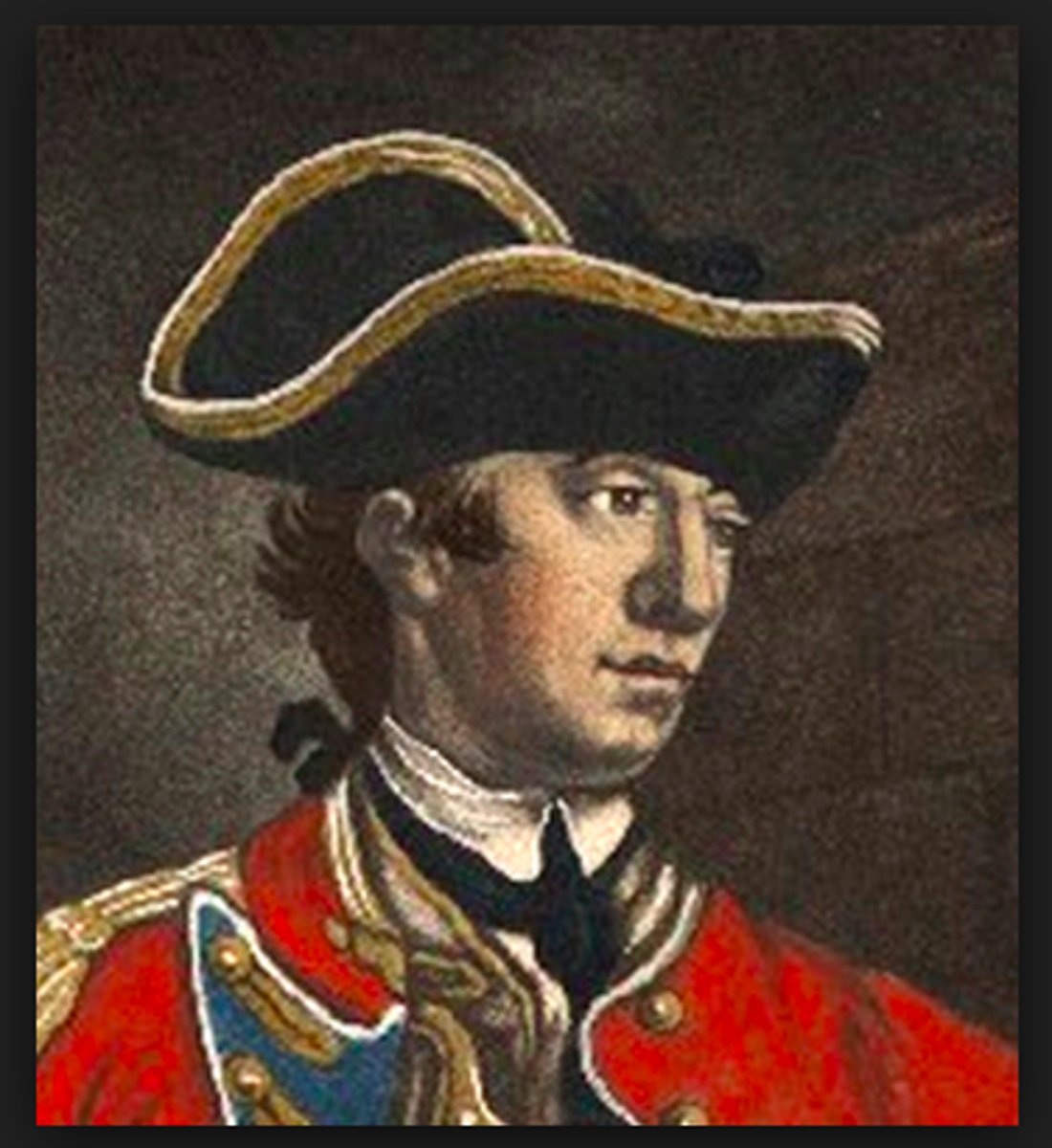
Trenton and Princeton
Tradition for wars was that you don't fight during the Winter. Washington had a different plan, he would attack the day after Christmas. Trenton was a hessian camp, which were mercenaries hired by the British, they were German. They were drinking a lot on Christmas and not expecting an attack. Many of Washington's men got frostbite and some even froze to death, but they made it and attacked. They were able to take Trenton and even though it wasn't a huge victory, it was symbolic and was an incentive to keep his men to stay and it did. He then attacks Princeton and gets another victory.
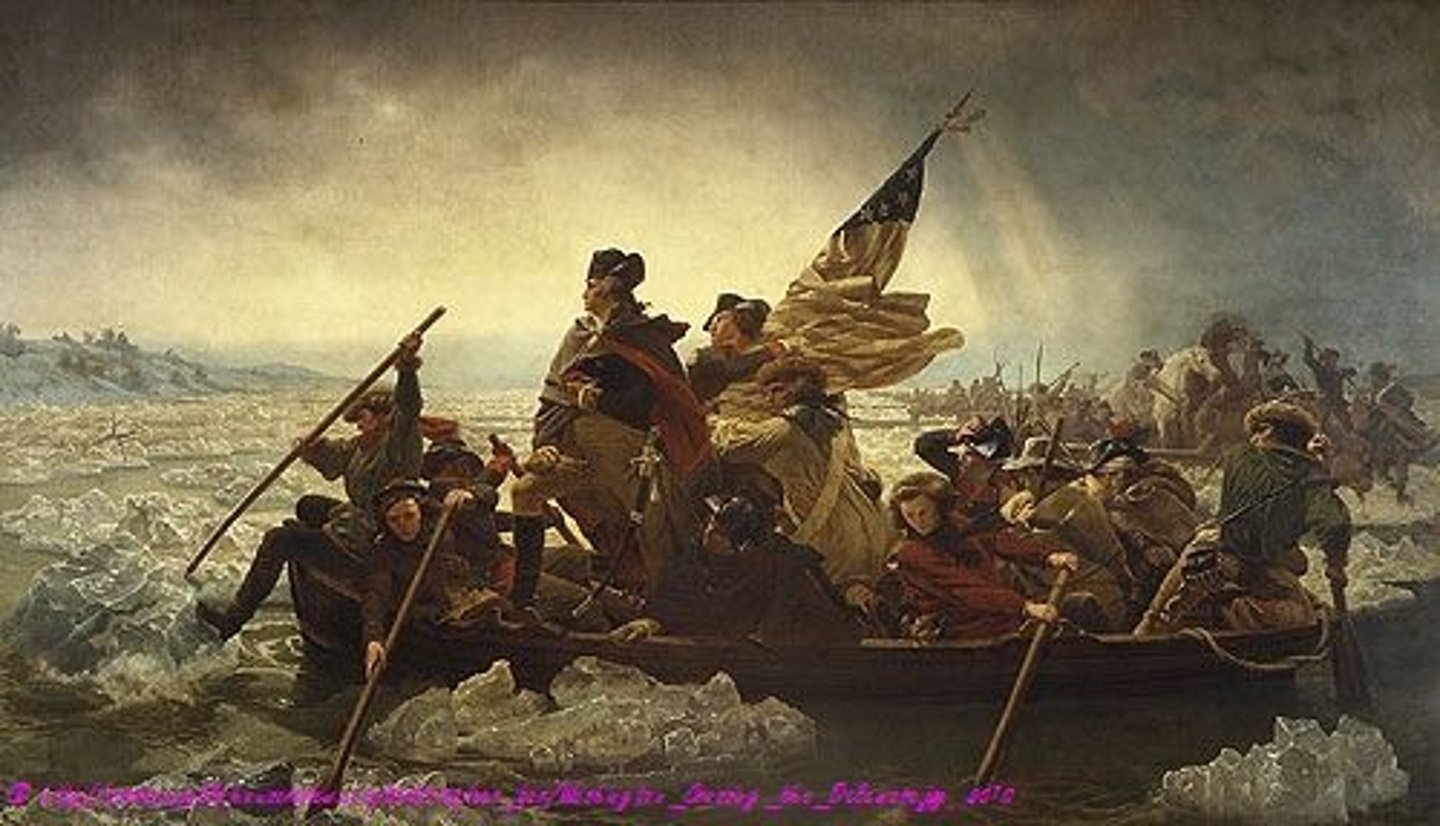
British Tactics
Howe could have easily destroyed Washington's army by following them but he didn't because it was against military tradition. British military tradition was to beat them on the field and have them surrender, face to face confrontation. Second reason he didn't was because he still believed there was room for peace, he wanted to show how the British were better thinking the colonists would make a peace negotiation.

General J. Burgoyne
A British general who submitted a plan for invading New York State from Canada. He got harrassed all the way down from troops, it wasn't an easy march for him. Called "General Johnny" because he liked the finer things in life.
General St. Leger
British Army officer who was supposed to make his way to Albany, New York from the West. He ended up having to retreat and never made it because he was being attacked.
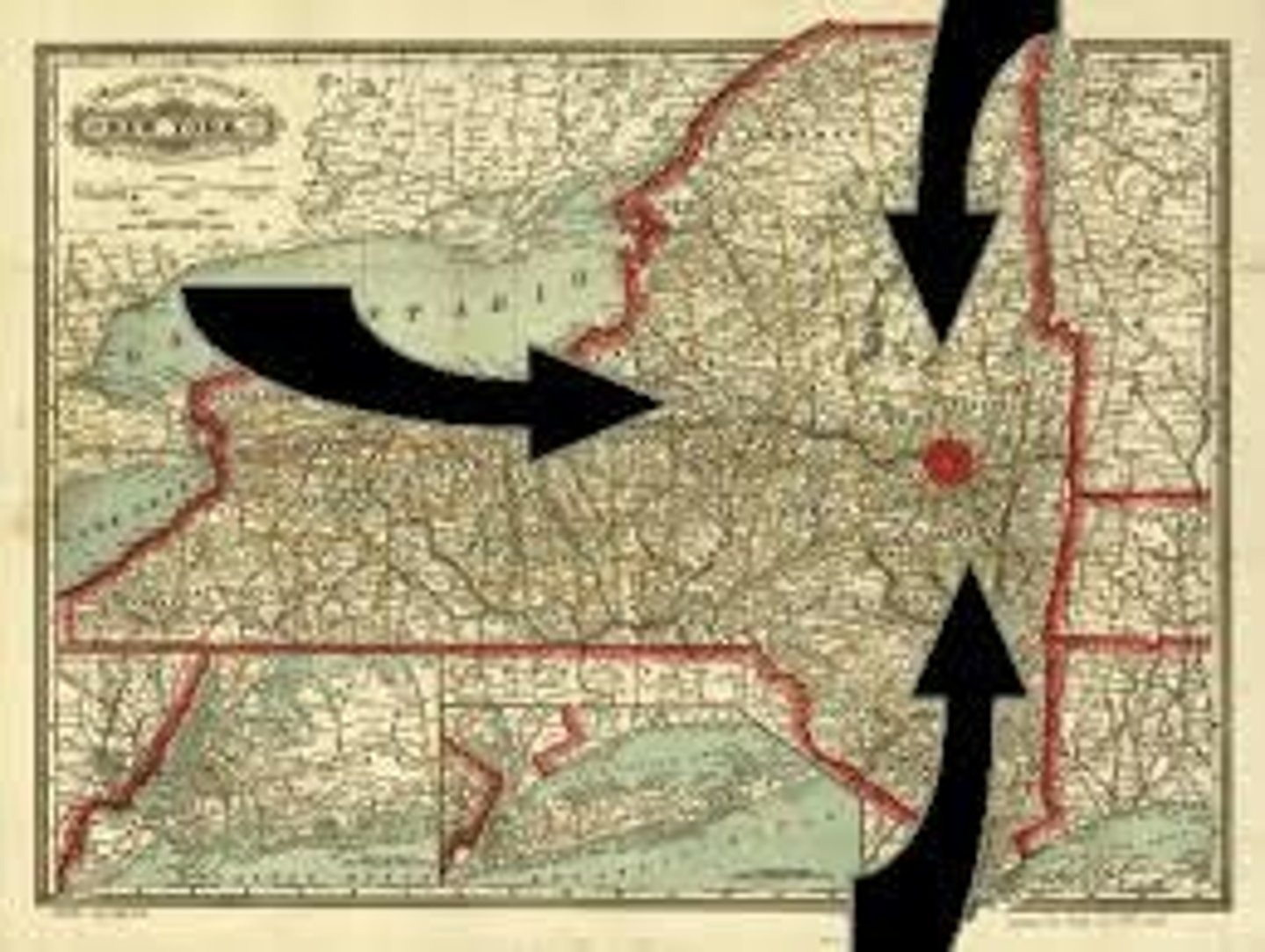
General William Howe NY
Was supposed to be coming up from NY. Howe had a change of plans, he wanted to go to Philadelphia and take it and capture the continental congress. Takes him a while to get there but he ends up making it and taking it but the congress had already fled to Baltimore.
General Horatio Gates
American general at Battle of Saratoga. Gathers up New England soldiers and surrounds St. Burgoyne and defeat him.
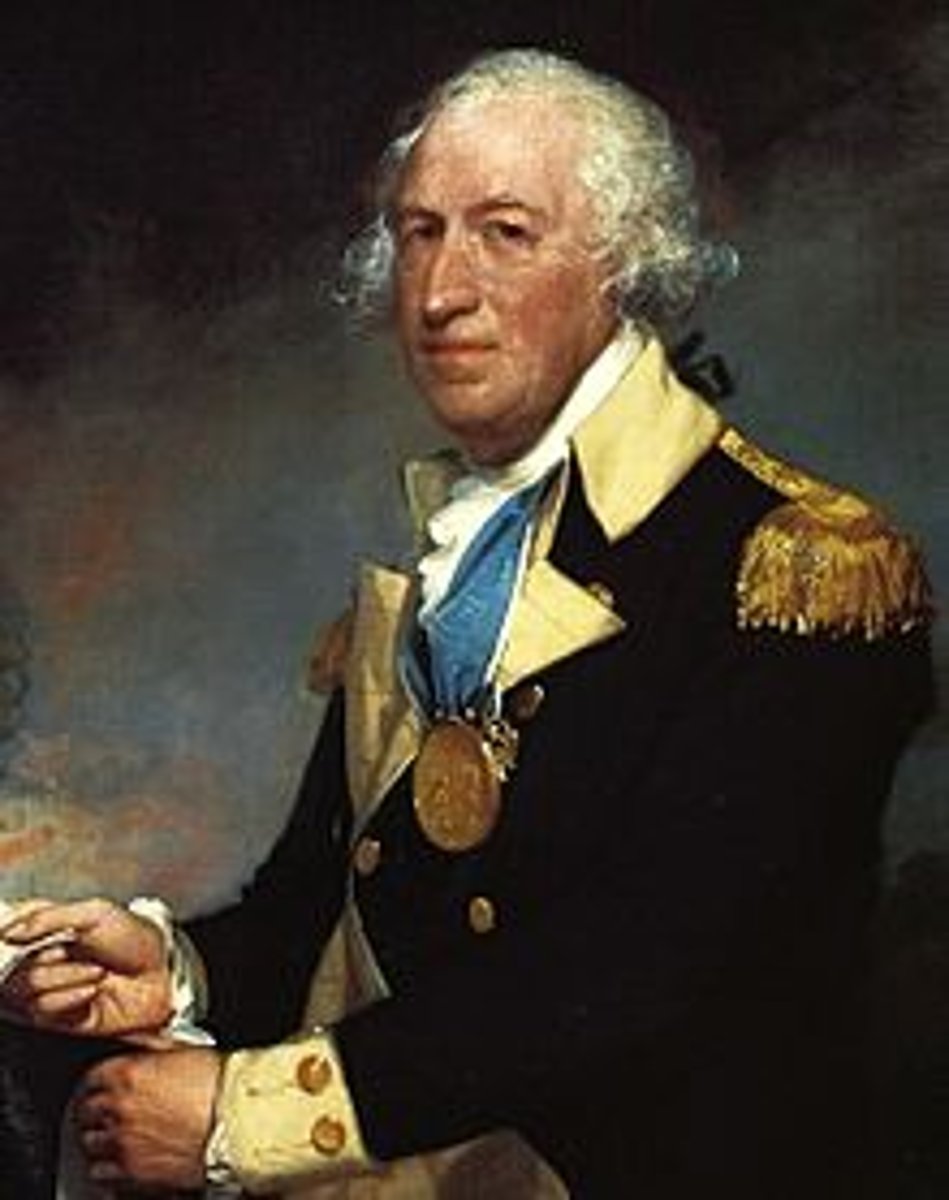
Saratoga
A battle that took place in New York where the Continental Army defeated the British. It proved to be the turning point of the war. This battle ultimately had France to openly support the colonies with military forces in addition to the supplies and money already being sent.
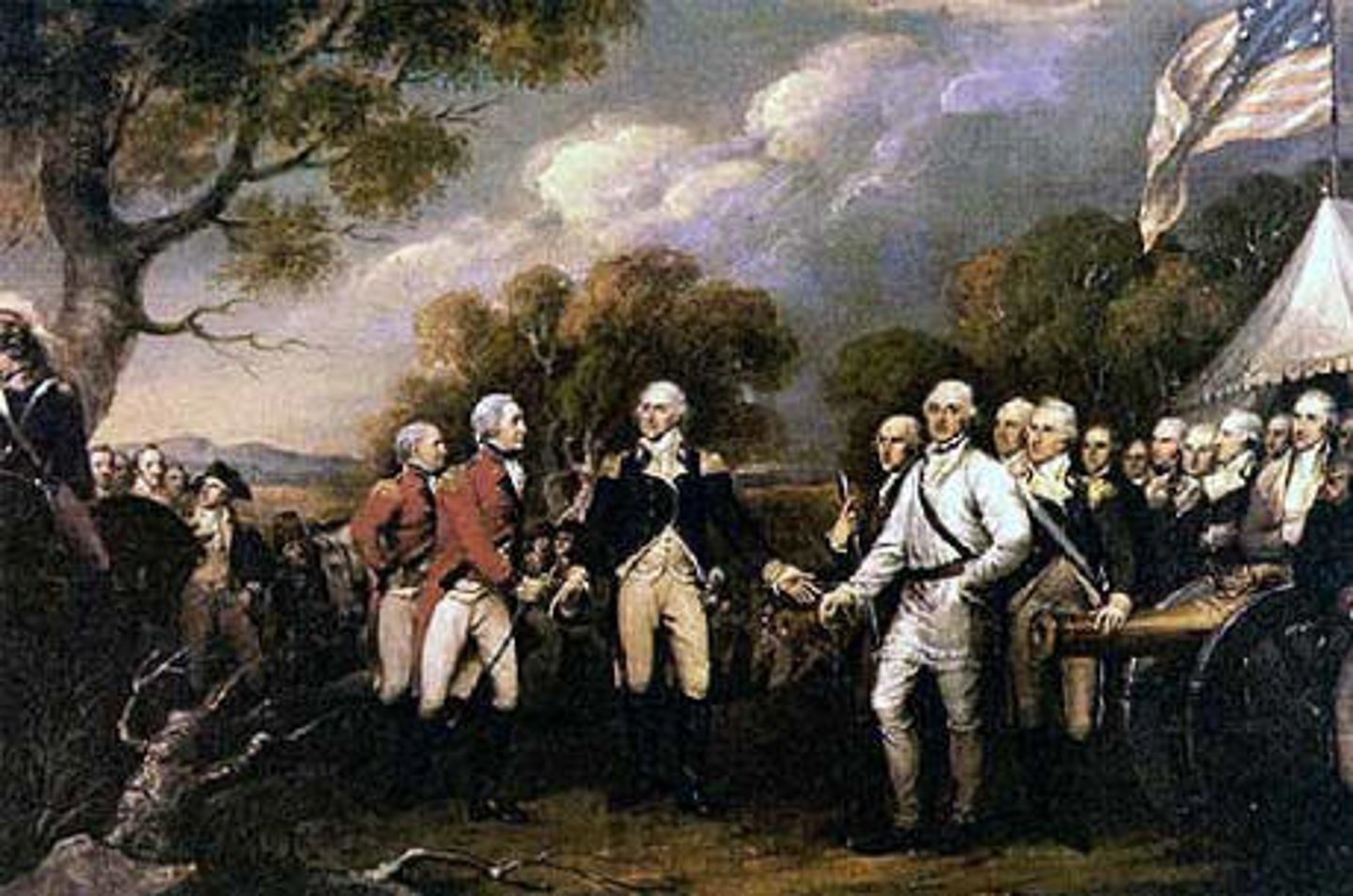
Benedict Arnold
Prior to his betrayal he was a hero, he had stolen a bunch of big cannons among others from a fort in upstate NY and took them during the Winter to Boston and surrounded Boston with these guns overnight and one of the reasons the British leave Boston. Was Washington's right hand. He betrayed for two reasons, one he thought he wasn't treated well by the army, was arrogant and believed he should've gotten promoted faster. secondly, he was in a lot of debt, had spent a lot of money during his time in Philadelphia. He speaks to Henry Clinton, a British army general and agree to turn over West Point. In order to this he had to be commander of West Point which he asked for from Washington and got it. He gives the maps and plans to Andre of how to attack WP who gets caught. Washington asks them to bring him Arnold but he escaped through a small boat to a British ship and gets a commision as a general in the British army, he's never totally trusted and gets a part of what he was promised.
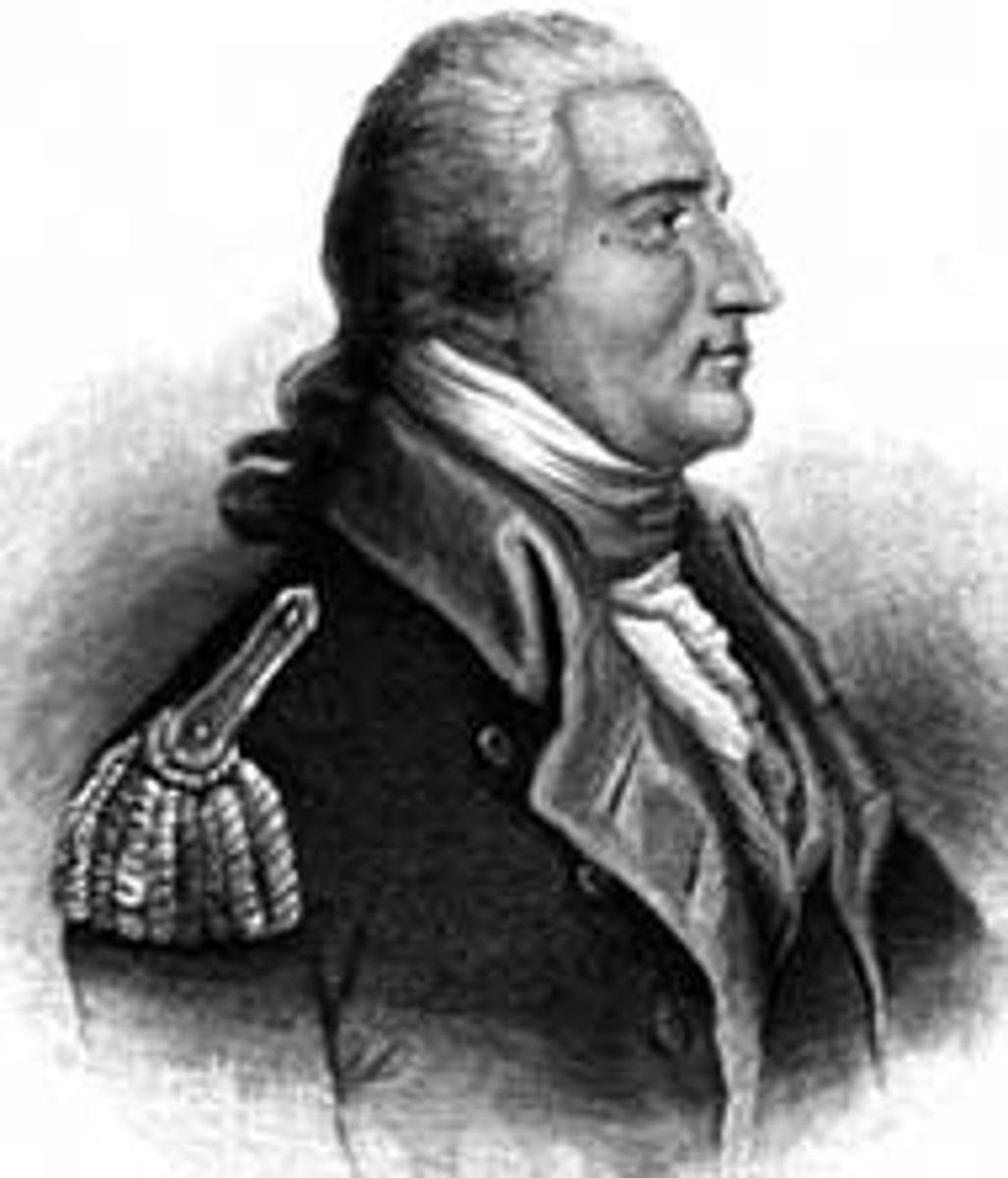
Valley Forge
Place where Washington's army spent the winter of 1777-1778, a 3rd of 12,000 troops died here from disease and malnutrition. the Americans ran out of money and clothing. cannot get help from surrounding areas because they're quakers and they cannot get involved at all. Baron Von Steuben who is a really weird guy who claims he's a prussian prince and is excellent trainer of men. Washington is the only one who trusts him but he turns out to be a good trainer and the army comes out better than when they entered.
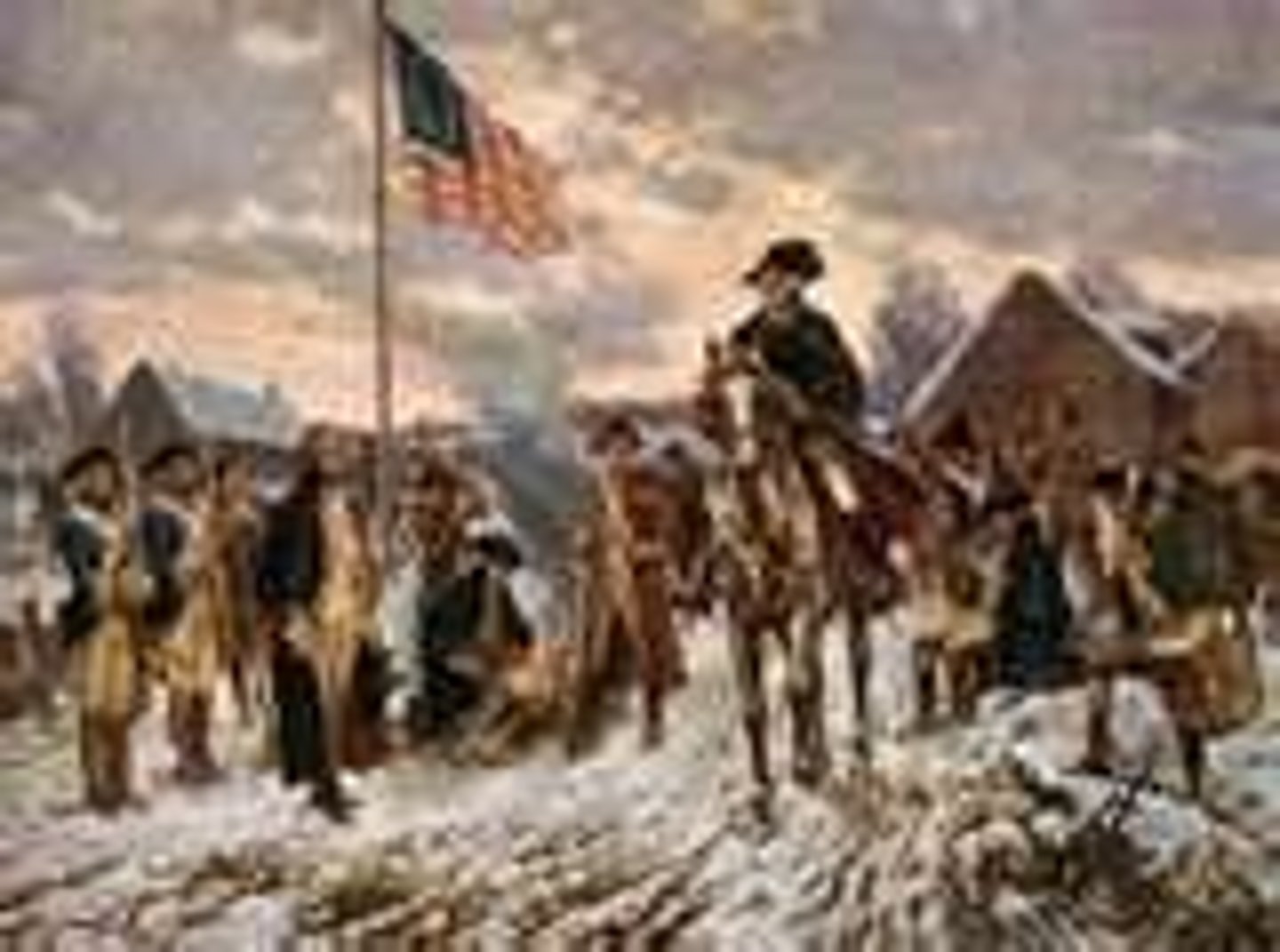
French Alliance
The French entered the war in 1778, and assisted in the victory of the Americans seeking independence from Britain. Was a huge part of the colonists victory and provided them with money, weapons, and troops.
Treaty of Paris
Agreement signed by British and American leaders that stated the United States of America was a free and independent country. The French don't want to end the war yet, they still have ideas of what they want to get out of it. Beginning of 1782, the war is over and fighting stops. The treaty is great for the Americans, they get their freedom but the British retain Canada, they get a duel rights to the Mississippi river. The Americans get most of the West (Michigan, Ohio, Illinois, Indiana). There were few Americans there and the main group was Native Americans and they knew it's over for them. One of the major points in the treaty was the debts to Great Britain still remained even after the war, the Loyalists got citizenship rights in the treaty but in reality they weren't treated well.
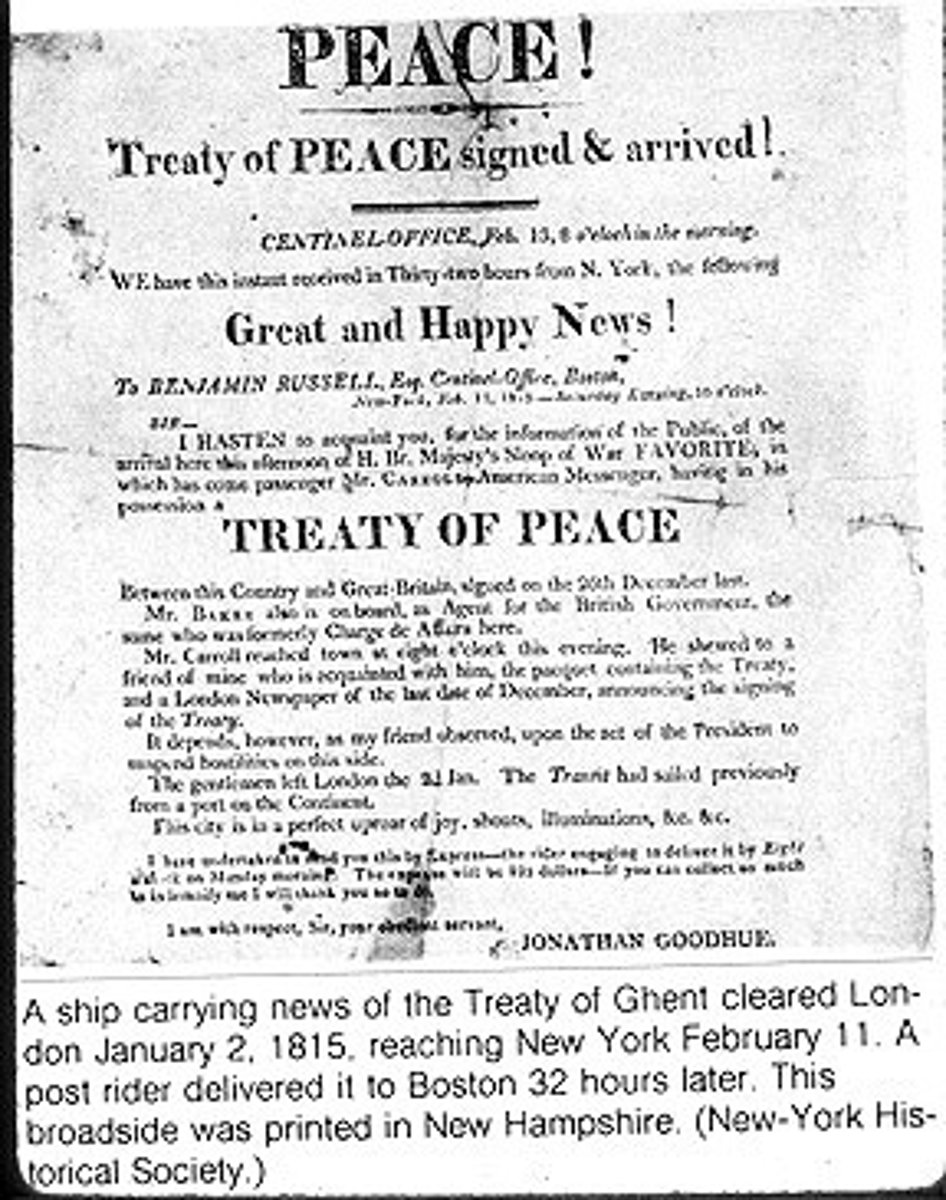
Treaty of Versailles
Was between France, Spain, and Great Britain. Great Britain kept the West Indies. Spain got Florida back. France got the island of Tobago and a lot of debt which later leads to their own revolution.
Articles of Confederation
Very weak and loose document, most of the power was given to the individual states and only government was the continental congress. didn't want a strong oppressive government like the British. Powers were declaring war and printing money. Weakness was it had no power to raise money and set up a centralized government. States could raise money by raising taxes but the citizens weren't able to pay these high taxes.
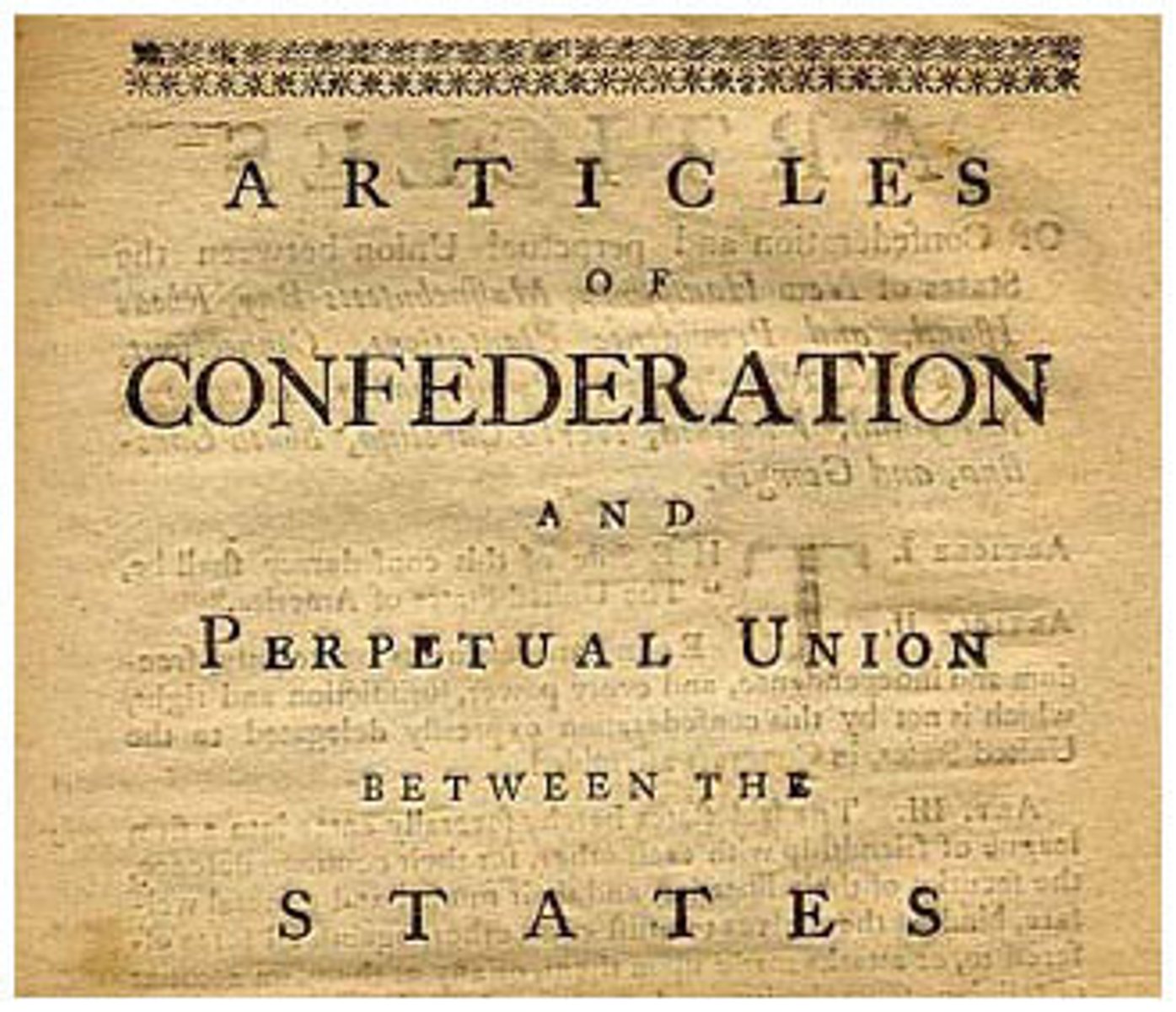
Shay's Rebellion
Massachusetts didn't partake in any debt relief programs so they're begin to be a movement against the government and leads to a revolt. It was lead by Daniel Shay's who was in debt as well and puts together a militia which marches into SpringField and shut down the Supreme court of MA. They begin saying "no taxation, without representation" but there was, they elected a senator. the MA legislature passes a riot act which allows the governor to call the militia and put it down. the militia dissolves on its own. the outcome shows how the government and the articles aren't strong.
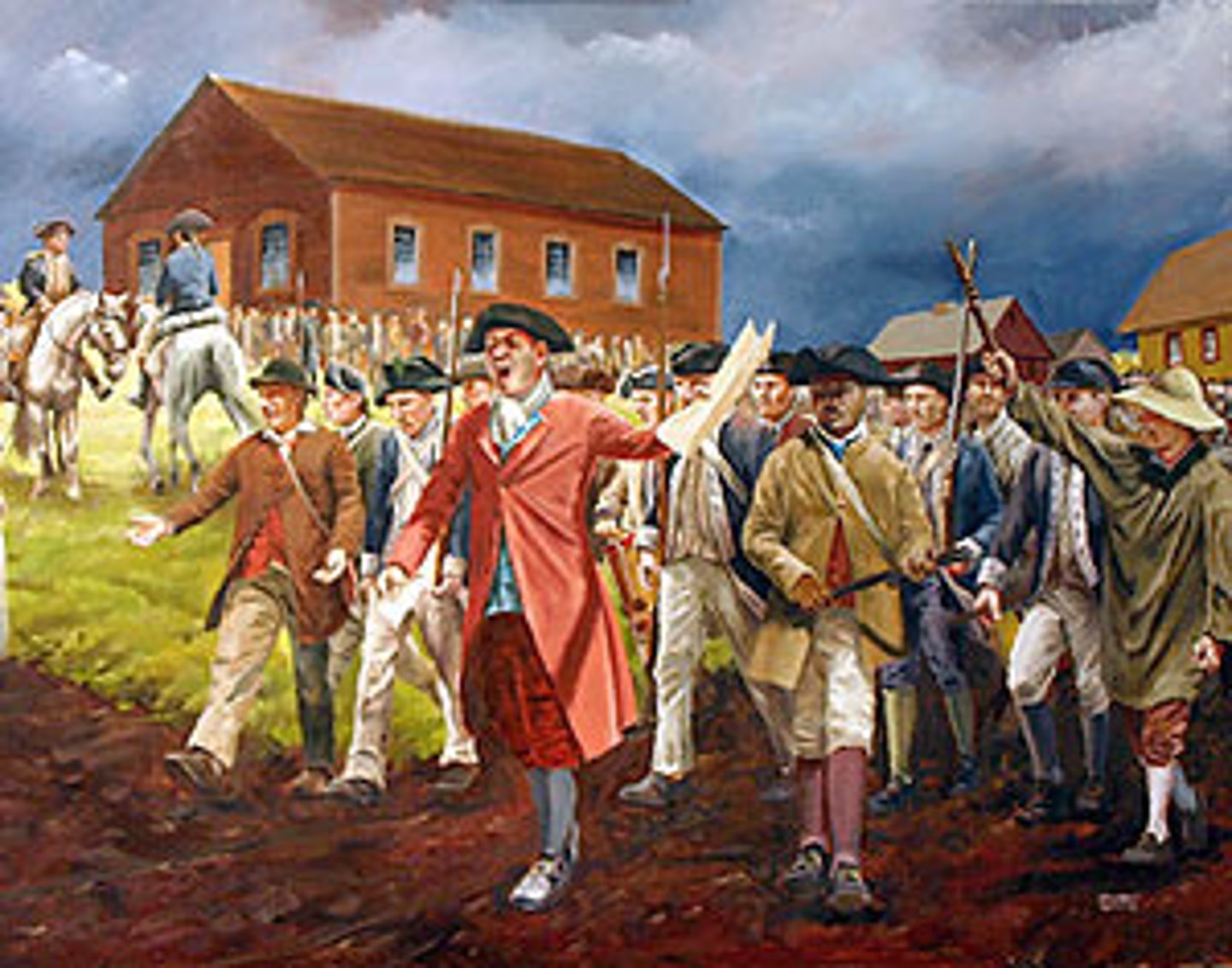
Constitutional Convention
13 delegates show up from every state, they discuss strengthening the articles, but what ends up happening is they throw the articles out. it's a very secretive meeting.
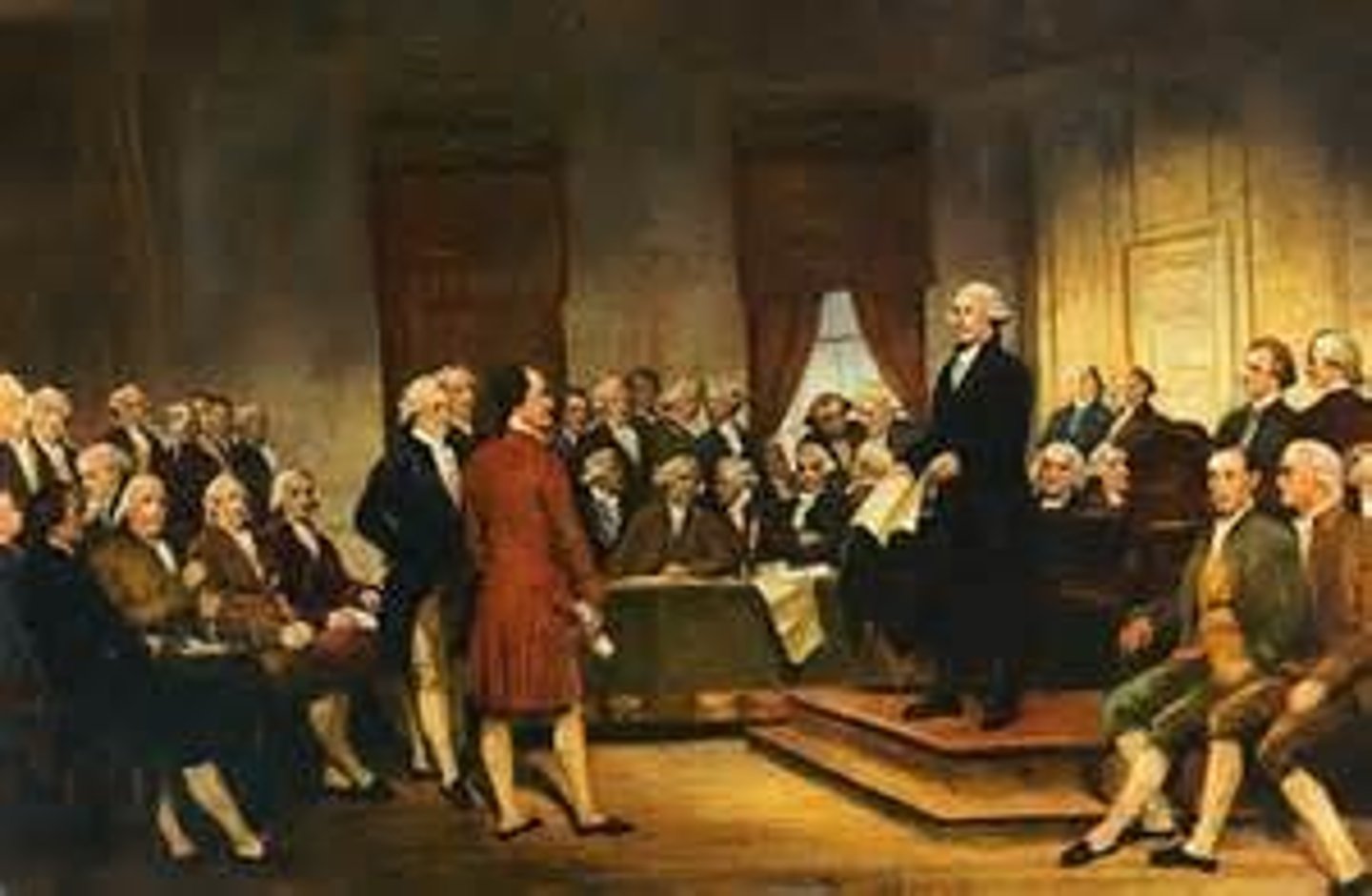
The Virginia Plan
Put by James Madison and ends up becoming the constitution. Madison puts a plan that has three branches of government: executive, legislative, and judicial.
The New Jersey Plan
A constitutional proposal that would have given each state one vote in a new congress. Wanted equal representation but Virginia didn't agree.
National Bank
Hamilton's big idea; fiercely opposed by Jefferson and Democratic-Rep. The bank would regulate money and draw investors; showed that the constitution could be construed in many a way.
Jefferson's Indian Policy
wants NA's to depend on America
buy NA land
assimilate
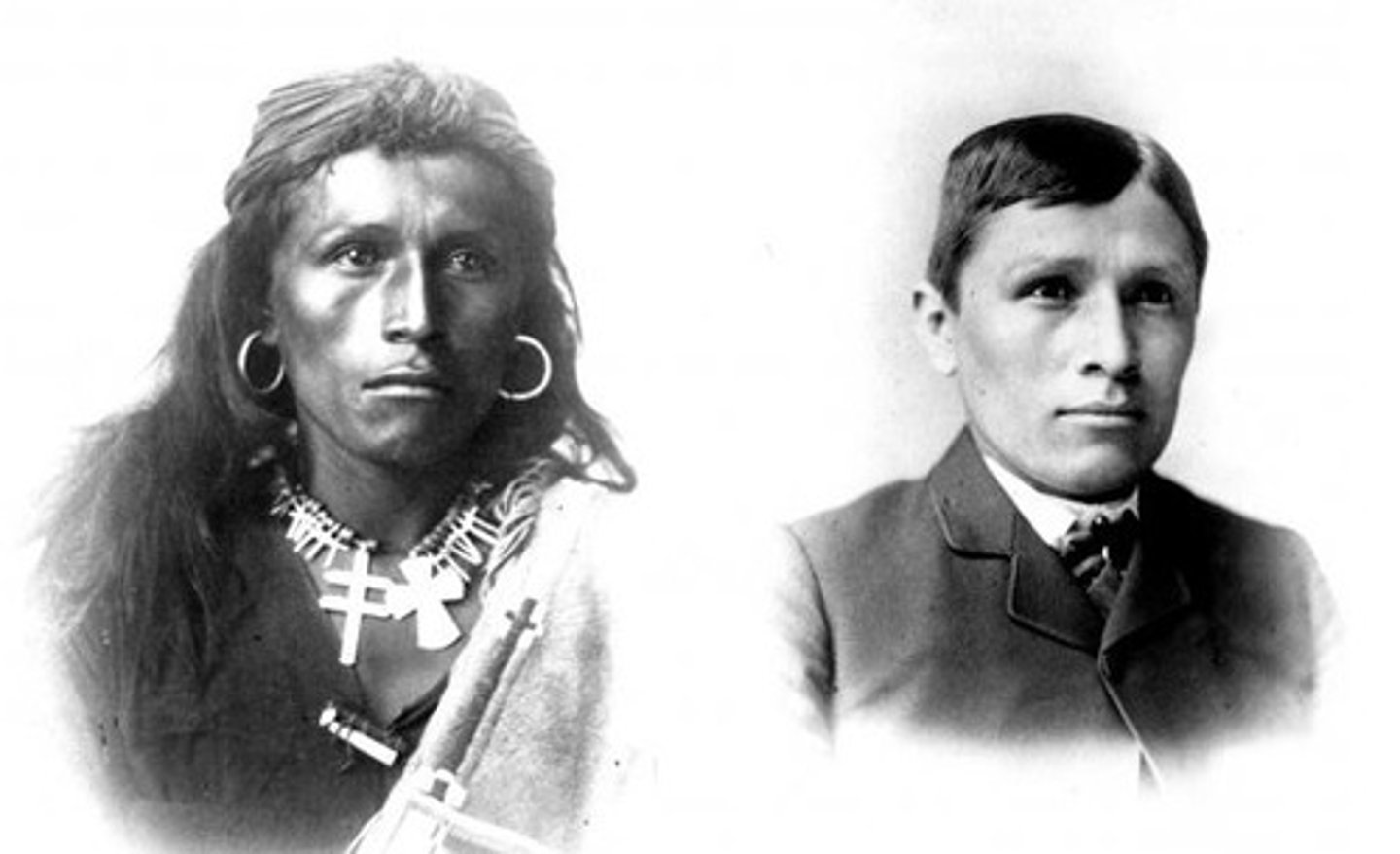
Jay treaty
Was made up by John Jay. It said that Britain was to pay for Americans ships that were seized in 1793. It said that Americans had to pay British merchants debts owed from before the revolution and Britain had agreed to remove their troops from the Ohio Valley
Yorktown
1781; last battle of the revolution; Benedict Arnold, Cornwallis and Washington; colonists won because British were surrounded and they surrended